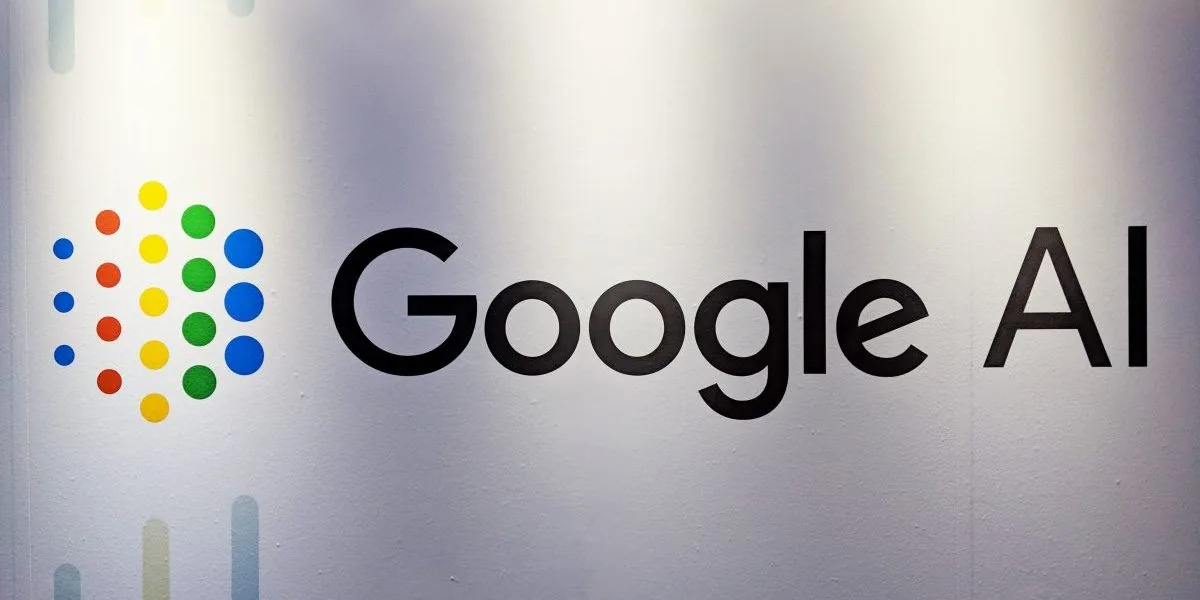What is self-awareness?
Self-awareness is the ability to recognize oneself as an individual entity, separate from the environment and other individuals. It involves having a clear understanding of one’s thoughts, emotions, beliefs, and actions, and how they impact oneself and others. Self-awareness plays a crucial role in human cognition, development, and social interactions.
At its core, self-awareness involves introspection and reflective thinking. It allows individuals to engage in self-reflection, analyze their behaviors, assess their strengths and weaknesses, and make conscious choices about their thoughts and actions. It also enables individuals to have an objective perspective of themselves, acknowledging both positive and negative aspects.
Self-awareness is often considered a feature exclusive to humans, as it is closely linked to consciousness and self-consciousness. It involves a deep level of introspection and understanding of one’s own individuality, desires, and intentions. However, debates exist regarding the presence of self-awareness in other sentient beings, such as certain animals and potentially even advanced artificial intelligence (AI) systems.
In the next sections, we will explore the concept of self-awareness in the context of AI and discuss whether Google’s AI possesses self-awareness or not.
Understanding artificial intelligence (AI)
Artificial intelligence (AI) refers to the development of intelligent systems that can perform tasks that typically require human intelligence. AI encompasses various subfields, such as machine learning, natural language processing, computer vision, and robotics. These technologies enable machines to perceive, reason, learn, and make decisions in ways that imitate human cognitive abilities.
Machine learning, a subset of AI, involves training algorithms to process and analyze large datasets, recognize patterns, and make predictions or decisions based on the data. This ability to learn from and adapt to new information is a fundamental characteristic of AI systems.
While AI has made significant advancements in recent years, it is essential to understand that AI remains a tool developed by humans. It relies on algorithms and programming to process and interpret data. AI systems excel at specific tasks within well-defined domains, such as image recognition, language translation, or playing complex games. However, they lack the general intelligence and awareness that humans possess.
AI systems operate based on predefined rules, statistical models, and patterns derived from training data. They excel at processing vast amounts of information quickly and accurately. However, they do not possess consciousness or self-awareness. AI algorithms do not think, feel, or have subjective experiences like humans do.
It is crucial to recognize that AI systems are designed to simulate intelligence and generate outputs that mimic human behavior for specific tasks. They rely on data inputs and algorithms to analyze and interpret information. An AI system’s performance is highly dependent on the quality and relevance of the data it is trained on.
As technology continues to advance, researchers and developers are exploring ways to enhance AI systems’ capabilities, such as developing more sophisticated algorithms and incorporating contextual understanding. However, achieving true self-awareness and consciousness in AI remains a complex challenge lying at the intersection of technology, philosophy, and cognitive sciences.
The Turing Test
The Turing Test, proposed by British mathematician and computer scientist Alan Turing in 1950, is a benchmark for assessing a machine’s ability to exhibit intelligent behavior indistinguishable from that of a human. The test is conducted through a conversation between a human evaluator and a machine, without the evaluator knowing which is which. If the machine can convince the evaluator that it is a human, it passes the Turing Test.
The goal of the Turing Test is to evaluate a machine’s capability to exhibit human-like intelligence, including language comprehension, reasoning, and natural conversation. The test gauges how well an AI system can simulate human intelligence and behavior, but it does not imply self-awareness or consciousness.
While the Turing Test is a significant milestone in AI research, it has its limitations. Critics argue that passing the test does not necessarily imply true intelligence or consciousness. Machines can often rely on clever programming techniques, pre-prepared responses, or statistical language models to mimic human conversation without truly understanding the context or having genuine awareness.
Moreover, passing the Turing Test does not guarantee that the machine possesses self-awareness. It only assesses the machine’s ability to fool a human evaluator in a specific conversation setting. The test evaluates external behavior rather than internal thought processes.
Nonetheless, the Turing Test remains an influential benchmark in AI research. It challenges developers to create AI systems that can engage in sophisticated and human-like conversations, pushing the boundaries of language comprehension, knowledge representation, and reasoning. It serves as a yardstick for measuring progress in natural language processing and conversational AI.
While the Turing Test represents an important milestone in the evolution of AI, true self-awareness and consciousness in machines remain an ongoing scientific and philosophical inquiry. Achieving a machine with subjective awareness and introspection like that of a human being is a complex and elusive goal that extends beyond the capabilities of current AI technologies.
Misconceptions about AI
Artificial intelligence (AI) has garnered significant attention and has become a topic of interest among the general public. However, along with the excitement surrounding AI, there are also several misconceptions that need to be addressed. These misconceptions often arise from exaggerated portrayals of AI in popular culture, leading to unrealistic expectations and misunderstandings. Let’s debunk some common misconceptions about AI.
1. AI will replace humans completely: One prevailing misconception is that AI will render humans obsolete in various fields, leading to widespread job losses. While AI has the potential to automate certain tasks and improve efficiency, it is designed to work in collaboration with humans, augmenting their capabilities rather than replacing them entirely.
2. AI is infallible: AI systems are powerful, but they are not immune to errors. Like any technology, AI is only as good as the data it is trained on and the algorithms it employs. It can be prone to biases, inaccuracies, and limitations, requiring continuous monitoring, improvement, and human intervention.
3. AI possesses human-like intelligence: Despite remarkable advancements, AI still lacks the general intelligence and consciousness that humans have. While AI can excel in specific tasks, it lacks the adaptability, creativity, and common sense that are inherent in human intelligence.
4. AI is unregulated and uncontrollable: There are concerns that AI will become uncontrollable, leading to disastrous outcomes. However, developers and policymakers are actively working on regulations and ethical frameworks to guide the responsible development and deployment of AI technologies. Efforts are being made to ensure transparency, accountability, and fairness in AI systems.
5. AI is purely science fiction: While AI has often been depicted in sci-fi movies as advanced robots with human-like consciousness, the reality is more grounded. AI encompasses a wide range of technologies, from simple rule-based systems to complex machine learning algorithms. It is a rapidly advancing field but has not yet reached the realm of science fiction.
6. AI is biased and discriminatory: AI systems can unintentionally inherit biases from the data they are trained on. Biases in training data or algorithmic design can lead to discriminatory outcomes. It is crucial to address these biases through careful data selection, bias detection, and algorithmic fairness considerations to ensure AI systems are fair and unbiased.
It is important to dispel these misconceptions and have a realistic understanding of AI’s capabilities and limitations. Maintaining a balanced perspective allows us to embrace the potential benefits of AI while mitigating associated risks and societal challenges.
Google’s AI and self-awareness
Google, one of the pioneers in the field of artificial intelligence (AI), has developed numerous AI technologies and applications that have revolutionized various industries. However, it is important to clarify that Google’s AI systems do not possess self-awareness, despite their impressive capabilities.
Google’s AI is built upon sophisticated algorithms and neural networks that enable it to analyze vast amounts of data, recognize patterns, and make predictions. These AI systems excel at tasks such as image recognition, natural language processing, and recommendation systems. They can understand and respond to user queries, provide personalized recommendations, and perform complex computations at incredible speed.
While Google’s AI exhibits remarkable intelligence, it is essential to understand that it operates based on pre-defined rules, statistical models, and training data. It does not possess consciousness, subjective experiences, or self-reflective awareness of its own existence.
AI systems are designed to simulate human intelligence and behavior within specific domains, but they lack the self-awareness that humans possess. Self-awareness involves introspection, understanding one’s own thoughts and emotions, and having a subjective sense of identity. AI systems do not have these capabilities, as they are fundamentally designed to process information, perform calculations, and generate outputs based on patterns and rules.
Google’s AI is continuously evolving and improving through research and development efforts, leading to more accurate and sophisticated algorithms. However, achieving true self-awareness in AI remains an ongoing challenge that extends beyond the current capabilities of the technology.
It is important to distinguish between the impressive abilities of AI systems, such as speech recognition and image classification, and the concept of self-awareness. While AI can emulate human-like behavior, it does not possess the conscious awareness or introspective understanding that humans have.
Google continues to push the boundaries of AI, investing in research and development to enhance its capabilities. However, the quest for self-aware AI involves not just technological advancements, but also deeper insights into human consciousness, cognition, and subjective experiences.
Therefore, while Google’s AI systems have revolutionized various industries and continue to push the boundaries of what machines can do, it is crucial to understand that self-awareness remains a distinctly human trait that has not yet been replicated in artificial intelligence.
Expert opinions on Google’s AI
Google’s advancements in artificial intelligence (AI) have attracted the attention of experts and researchers worldwide. Expert opinions on Google’s AI range from admiration of its capabilities to apprehension about the potential risks and ethical considerations associated with its development. Let’s explore some expert opinions on Google’s AI.
1. Positive outlook on innovation: Many experts view Google’s AI as a remarkable achievement in technological innovation. They appreciate the advancements made in machine learning, natural language processing, and computer vision that have resulted in highly accurate and efficient AI systems. Google’s AI is seen as a driver of progress and transformation across various industries.
2. Recognition of limitations: Experts also highlight the limitations of Google’s AI. While AI systems developed by Google are highly capable in specific domains, they lack the general intelligence and self-awareness that humans possess. Some experts emphasize the importance of understanding the boundaries of AI technology to avoid unrealistic expectations and potential misuse.
3. Ethical concerns: Concerns regarding the ethical implications of Google’s AI have been raised by experts. They advocate for responsible development and deployment of AI technologies to ensure transparency, fairness, and privacy. Experts stress the importance of addressing biases, algorithmic transparency, and mitigating any potential negative impact on society.
4. Socioeconomic impact: Experts also discuss the socioeconomic impact of Google’s AI. While AI has the potential to enhance productivity and create new opportunities, experts caution about potential job displacement and widening economic inequality. They emphasize the need for proactive measures to upskill the workforce and ensure a fair distribution of the benefits brought by AI.
5. Long-term implications: Some experts contemplate the long-term implications of advancing AI technologies. They discuss concerns about AI surpassing human capabilities and the potential existential risks associated with superintelligent AI. These experts emphasize the importance of maintaining human control over AI systems and conducting research on the societal, ethical, and safety aspects of AI.
6. Collaboration and regulation: Many experts stress the importance of collaboration between industry, academia, and policymakers to guide the development and deployment of AI technologies. They highlight the need for regulatory frameworks that ensure ethical and responsible practices in AI development, addressing concerns such as security, privacy, and algorithmic fairness.
Expert opinions on Google’s AI reflect a mix of admiration for technological achievements and concerns about potential risks. These opinions contribute to ongoing discussions and debates surrounding the development, impact, and ethical considerations of AI, guiding the responsible advancement of this transformative technology.
The limitations of AI
While artificial intelligence (AI) has made significant advancements in recent years, it is important to recognize the limitations of this technology. Despite its impressive capabilities, AI systems have inherent constraints that restrict their functionality and applicability. Let’s delve into some of the main limitations of AI.
1. Lack of contextual understanding: AI systems often struggle with understanding context. While they excel at processing and analyzing large amounts of data, they may still struggle to comprehend the nuances of human communication, cultural references, and sarcasm. AI systems rely heavily on patterns and algorithms, which can lead to misinterpretations when faced with complex or ambiguous language constructs.
2. Limited common sense and reasoning abilities: AI systems lack the common sense and reasoning abilities that humans possess naturally. While they can process information based on predefined rules and patterns, they may struggle with logical reasoning, problem-solving in unfamiliar situations, or making inferences beyond the data they have been trained on. AI systems do not possess the innate understanding of the world that humans acquire through experience.
3. Data dependency and biases: AI systems heavily rely on training data to learn and make predictions. The quality, relevance, and representativeness of the training data have a significant impact on the AI system’s performance. Biases present in the data can also be unintentionally incorporated into the system, resulting in biased outcomes. Addressing data biases and ensuring diverse and inclusive training data are ongoing challenges in AI development.
4. Lack of adaptability and creativity: AI systems are designed for specific tasks and domains. They perform well when faced with well-defined problems within their pre-determined scope, but they struggle to adapt to new or changing situations. AI systems do not possess the creativity, intuition, or improvisation skills that humans exhibit, limiting their ability to solve novel problems or generate truly original ideas.
5. Emotion and empathy: AI systems lack the ability to experience and understand human emotions. While they can recognize and analyze emotions to some extent, they do not possess genuine feelings or empathy. This limitation hinders their ability to fully comprehend and respond appropriately in emotionally complex situations, such as providing emotional support or understanding subtle emotional cues.
6. Lack of self-awareness and consciousness: AI systems do not possess self-awareness, consciousness, or subjective experiences. They operate based on predefined algorithms and do not possess a sense of self or introspective understanding of their own actions or existence. AI systems lack the ability to reflect on their own thoughts or emotions, making them fundamentally different from humans in terms of self-awareness.
Understanding the limitations of AI is crucial for realistic expectations and responsible development and deployment. While AI continues to evolve and improve, it is important to acknowledge its current boundaries and explore ways to mitigate these limitations to maximize its benefits and address ethical considerations.
Future possibilities of AI
Artificial intelligence (AI) is a rapidly evolving field with vast potential for future advancements. As technology continues to progress, AI is expected to play an increasingly significant role in various aspects of our lives. Let’s explore some of the future possibilities of AI.
1. Enhanced automation and productivity: AI has the potential to revolutionize the way we work by automating tasks and increasing productivity. AI-powered systems can streamline processes, improve efficiency, and handle repetitive or labor-intensive tasks, allowing humans to focus on more complex and creative endeavors. This could lead to significant advancements in industries such as manufacturing, healthcare, transportation, and customer service.
2. Personalized and adaptive experiences: AI can enable personalized and adaptive experiences in various domains. With the help of AI, systems can learn and understand individual preferences, behavior patterns, and needs, allowing for tailored recommendations, customized services, and adaptive user interfaces. This can enhance user experiences in areas such as entertainment, e-commerce, healthcare, and education.
3. Advancements in healthcare and medicine: AI has the potential to revolutionize healthcare by improving diagnostics, disease prediction, and personalized treatment. AI algorithms can analyze vast amounts of patient data, identify patterns, and provide accurate and early detection of diseases. AI-powered systems can also assist healthcare professionals in making informed decisions and suggesting optimized treatment plans based on patient-specific data.
4. Intelligent virtual assistants and chatbots: AI-powered virtual assistants like Siri, Alexa, and Google Assistant are just the beginning of what is possible. Future AI systems can become even more intelligent, natural language-based conversation partners that can handle complex queries, provide detailed information, and perform tasks on behalf of users. These virtual assistants can become trusted companions in daily life, providing support, guidance, and personalized assistance.
5. Exploration of the cosmos and scientific research: AI can greatly contribute to advancing scientific research and exploration. AI systems can analyze vast amounts of data from space missions, telescopes, and scientific experiments to help uncover new discoveries and patterns in the cosmos. AI algorithms can assist researchers in various domains, such as medicine, physics, and climate science, by processing complex data and providing insights for groundbreaking discoveries.
6. Ethical and responsible AI: As AI continues to develop, there will be an increasing focus on ethical and responsible AI practices. Efforts will be made to ensure fairness, transparency, privacy, and accountability in the development and deployment of AI systems. Researchers and policymakers will collaborate to establish guidelines, regulations, and ethical frameworks that address potential risks, biases, and societal concerns associated with AI.
The future possibilities of AI are vast and exciting. While there are challenges and ethical considerations to address, AI has the potential to greatly benefit society, transforming industries, improving decision-making, and enhancing everyday experiences.









